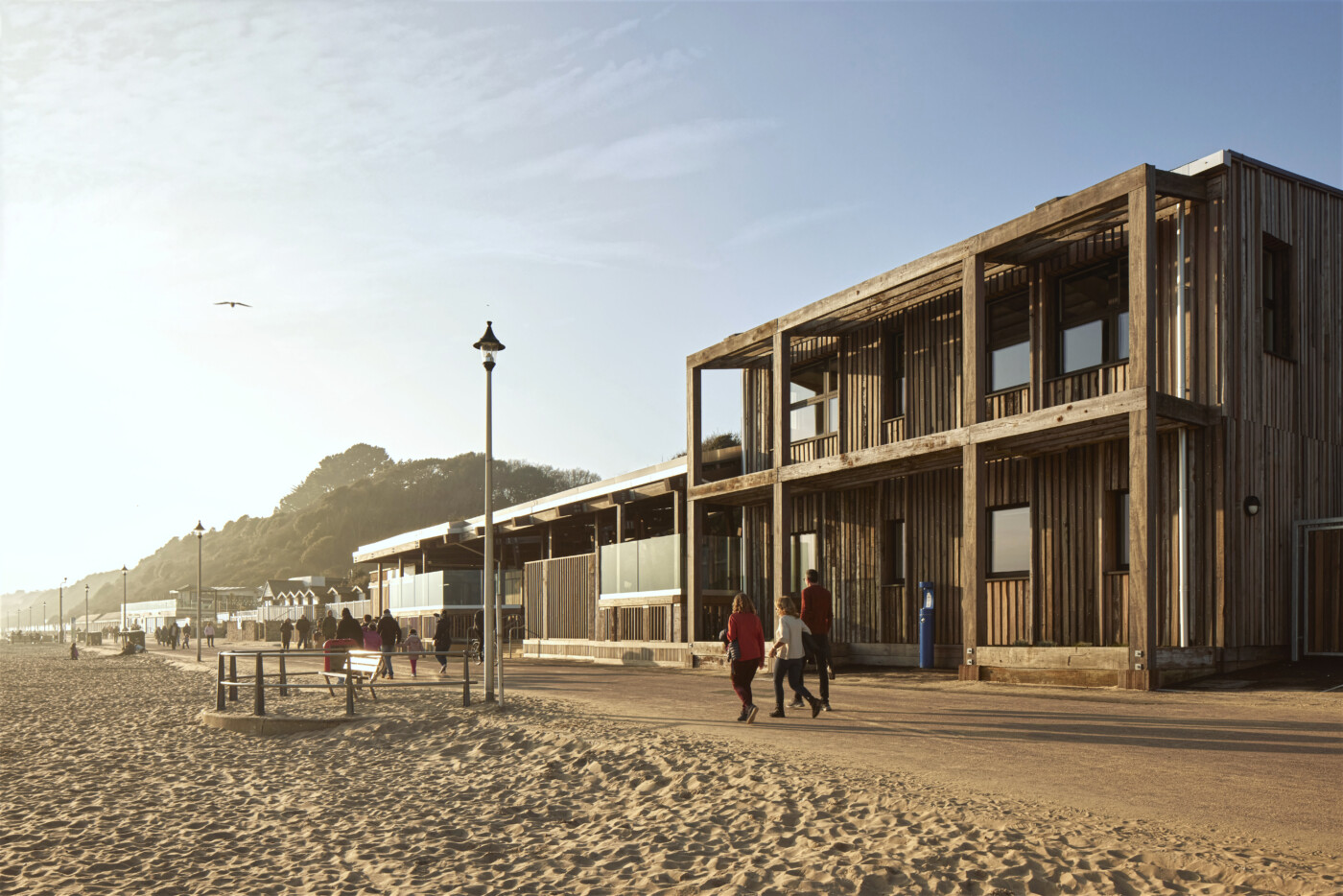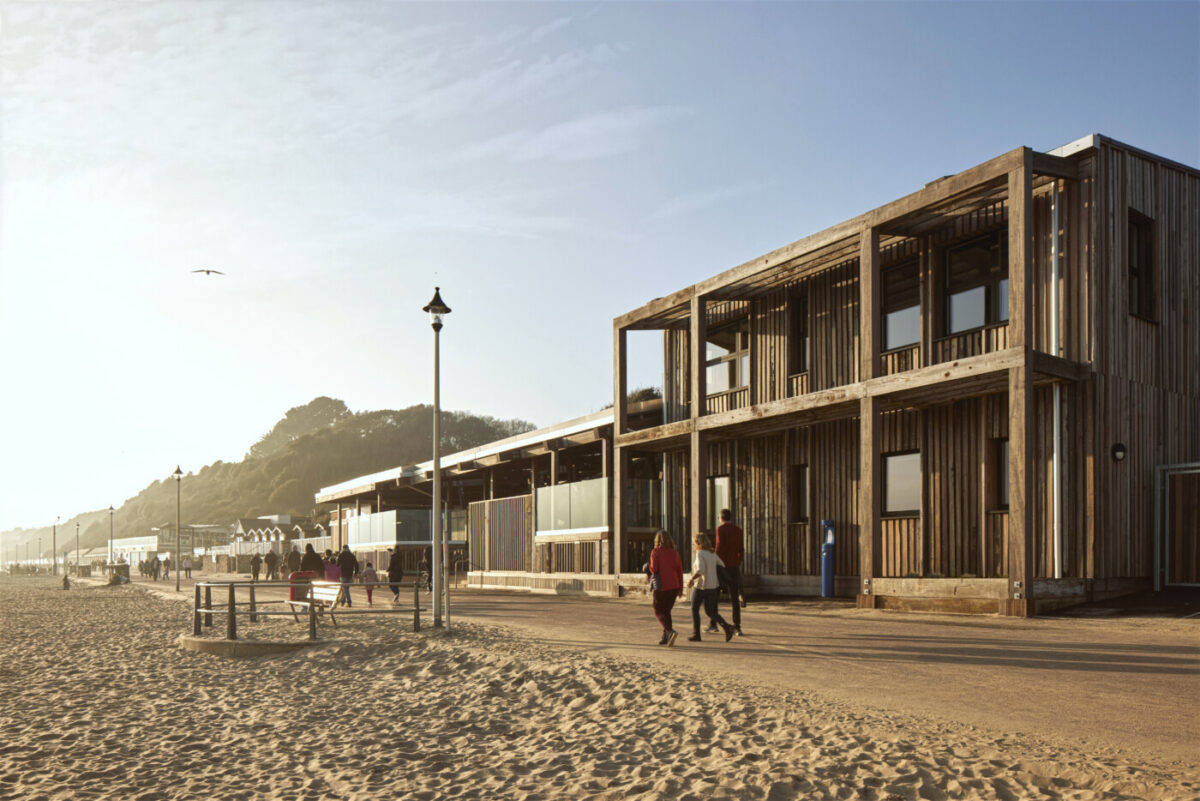Bournemouth’s newest seafront visitor centre is now open to the public & it’s making waves as an exemplar for what can be achieved when sustainability becomes the primary design driver of a project.
Designed by Footprint Architects, the Environmental Hub is located at Durley Chine, one of Bournemouth’s internationally recognised Blue Flag beaches. This highly insulated, Passivhaus certified, timber framed education, welfare and exhibition
space commissioned by client BCP, is a beacon for low carbon innovation and what can be achieved when you move beyond the traditional construction pathway. The building is designed to be Net Zero in operation and has been design with low embodied energy construction.
Some of the key features include a structure of reclaimed groyne timbers, a living roof canopy of native plants, decking from a decommissioned German submarine base, newspaper insulation, and a kiosk completely constructed from locally sourced sand and aggregate inspired by the local geology of the cliff and using cement substitute throughout the structure.
With around 2,000 tons of waste removed from Bournemouth, Christchurch and Poole’s beaches every year, the hub will be a centre of focus for BCP Council’s efforts to educate and change behaviours along the seafront. The project aims to contribute towards BCP’s ambitions to become a Green Economy Leader by helping to achieve a step change in the reduction of single use plastics and increased levels of recycling along our stretch of coastline. It will achieve this via partnership working with seafront businesses, major public and private sector organisations, the academic and volunteer sectors. In addition, there will be marketing campaigns to promote behavioural change, an immersive environmental visitor centre and collaboration with BCP’s Smart Place Research & Development Consortium to collect an array of coastal environmental data to guide future innovation.
Three Winning Facts:
- A drive to use local and natural materials where possible – including 52 tons of reclaimed groynes directly from the beachfront, and decking reclaimed from a German submarine base.
- Net Zero Carbon in use
- Life-cycle carbon analysis to reduce CO2 was used as part of the design process, and the embodied carbon is estimated to be approximately 172 kgCO2e/m2.


